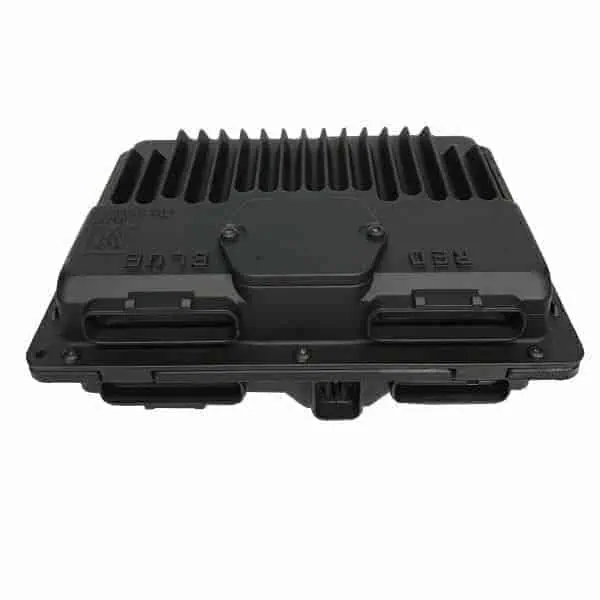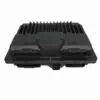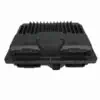Is Your 1998-1999 Chevy Truck Running Rough?
If you’re dealing with a persistent check engine light, erratic engine behavior, poor fuel mileage, or transmission shifting problems in your Chevrolet 2500, the root cause is often a failing Powertrain Control Module (PCM). The PCM is the central computer of your vehicle, responsible for managing everything from fuel injection and ignition timing to transmission shift points and emissions controls. When it starts to fail, it can create a cascade of frustrating and difficult-to-diagnose issues. Don’t let a faulty computer keep your reliable truck off the road. This replacement PCM is the solution to restore your vehicle’s performance and reliability.
From the Diagnostic Bay
We had a ’99 GMC Suburban (which uses the same platform) come into the shop with a complaint of harsh, delayed shifting and a flashing check engine light. The customer had already replaced the transmission fluid and filter, but the problem persisted. Our scan tool pulled codes for multiple transmission solenoids and a torque converter clutch circuit error. An experienced tech knows that multiple, seemingly unrelated electronic codes often point to a single source: the computer. After checking the wiring harness for damage, we connected a scope to the PCM outputs and confirmed the signals to the transmission were weak and erratic. We installed a VIN-programmed PCM just like this one, performed the security relearn, and the truck shifted perfectly. It wasn’t a bad transmission; it was a bad computer giving it the wrong commands.
The Direct-Fit Solution: A Programmed 1998-1999 Chevrolet 2500 PCM
This isn’t just a generic, off-the-shelf part. This is a genuine, used OEM engine computer that has been meticulously tested and is ready for programming specifically for your truck. When you place your order, you provide us with your vehicle’s VIN. Our technicians then use that VIN to flash the module with the latest, most up-to-date GM factory software for your exact vehicle configuration. This critical step ensures that the computer communicates flawlessly with your engine, transmission, and all other onboard systems. It accounts for your specific engine size (5.0L, 5.7L), transmission type, and emissions equipment, making for a true plug-and-play installation.
Common Symptoms of a Failing PCM
- ✔ Persistent Check Engine Light (CEL) with various codes
- ✔ Engine stalling or stumbling for no apparent reason
- ✔ Rough or inconsistent idling
- ✔ Noticeable decrease in fuel economy
- ✔ Harsh or erratic automatic transmission shifting
- ✔ Failure to pass emissions testing
- ✔ Complete no-start condition where the engine cranks but won’t fire
- ✔ Intermittent issues that are difficult to replicate
Guaranteed Compatibility and Simple Installation
This PCM, identified by service number 16250279 and ID 9355699, is a direct replacement for a wide range of GM trucks, vans, and SUVs from the 1998-1999 model years. It is compatible with numerous part numbers, including 09355699, 16266645, 9355699, 16258815, and 09366810. From a Chevrolet Express Van to a Cadillac Escalade or a GMC Sierra, this module was the workhorse computer for GM’s gasoline engines of that era. Installation is straightforward for a DIY mechanic. Simply disconnect the battery, locate your existing PCM in the engine bay, carefully unplug the wiring harness connectors, unbolt the old unit, and install the new one in its place. Once installed and the battery is reconnected, you may need to perform a simple security relearn procedure, which can typically be done without special tools. This process ensures your vehicle starts and runs correctly with its new brain.
Frequently Asked Questions
Why do you need my VIN?
Your Vehicle Identification Number (VIN) is essential because it contains all the specific information about your truck—engine size, transmission type, gear ratios, and emissions options. We use the VIN to load the exact GM factory software for your vehicle onto the PCM. This ensures perfect compatibility and prevents performance issues that would arise from a non-programmed or incorrectly programmed module.
Is this part difficult to install?
Installation is generally simple for someone with basic mechanical skills. It involves disconnecting the vehicle’s battery, unplugging the electrical connectors from the old PCM, removing a few bolts, and then installing the new unit. The most important part is being gentle with the connectors. No special tools are typically required for the physical swap.
Will I need to take my truck to a dealer after installation?
No. Because we program the PCM to your VIN before shipping it, you will not need to visit a dealer for programming. In some cases, a simple security relearn procedure (also known as a CASE relearn) may be necessary, which can often be done at home by following a specific sequence of key turns. We can provide instructions for this procedure.
What is the difference between a PCM, ECM, and ECU?
The terms are often used interchangeably. ECU (Electronic Control Unit) is a generic term for any computer in a car. ECM (Engine Control Module) specifically controls engine functions. PCM (Powertrain Control Module) is the most accurate term for this part, as it controls both the engine and the transmission functions in one integrated unit.
How do I know for sure that my PCM is the problem?
Diagnosing a faulty PCM can be tricky. The best way is to have a qualified mechanic rule out other potential causes first, such as bad sensors, wiring issues, or fuel delivery problems. However, if you are experiencing multiple, unrelated electronic error codes, or if all other potential causes have been eliminated, the PCM is the most likely culprit.


